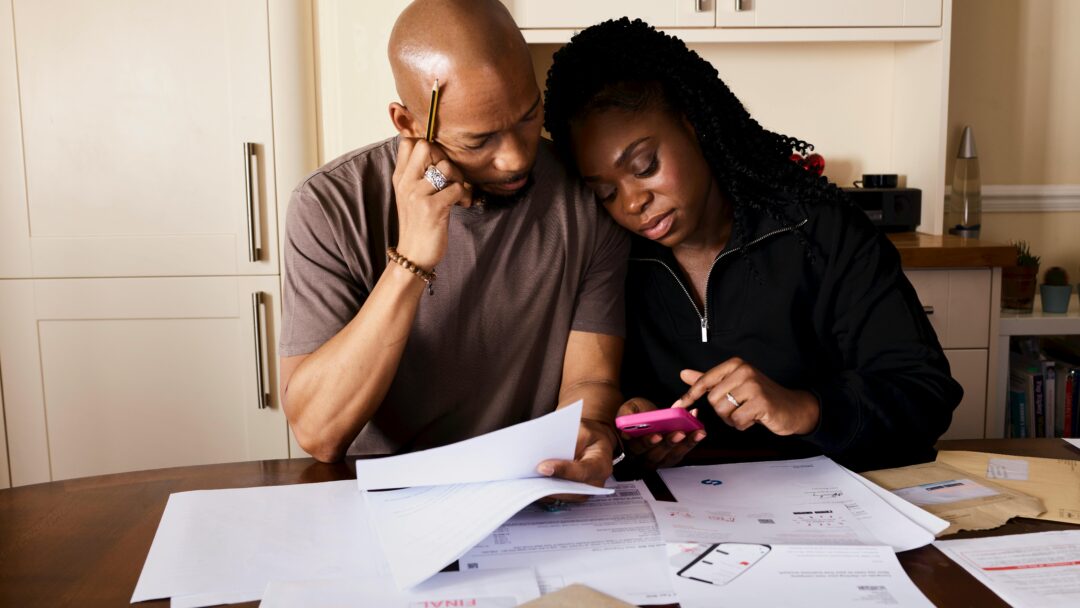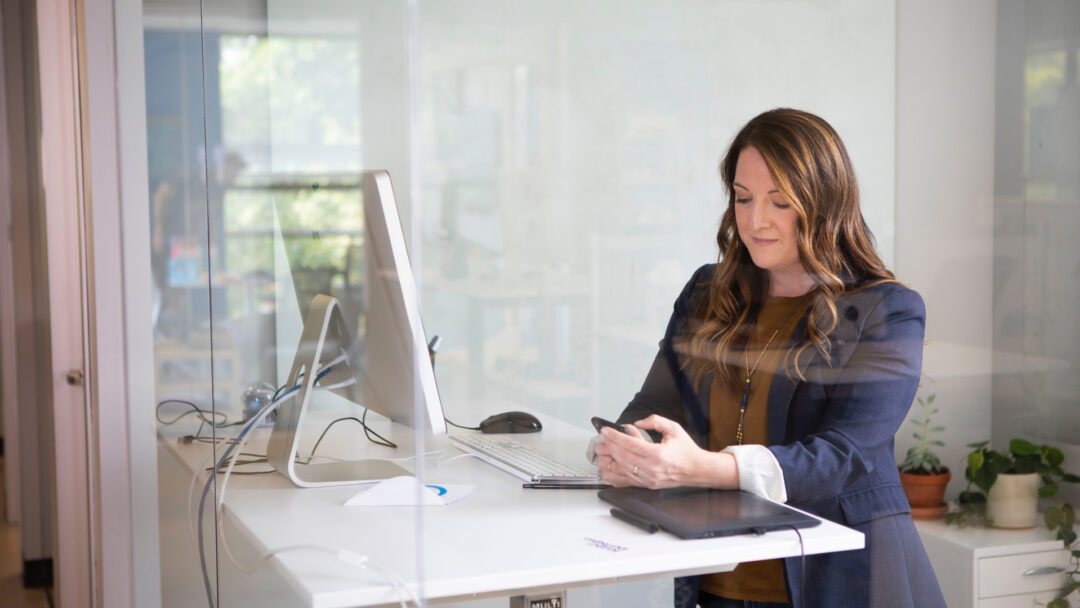Emergency Expense Debt Relief
Many people blame unexpected expenses for the reason they suddenly find themselves in debt. Even with the best of budgeting, it only takes one large medical bill or repair to throw your finances out of whack.
Your personal loan interest rate is based on your unique financial situation. Below are some factors that creditors consider before determining what to charge:
- Automobile
Your car breaking down on the side of the road is an unplanned expense. And what about regular maintenance like replacing your tires, which could happen at any time and cost up to $1,000? Where are you going to find that money if you don’t have a financial cushion? If you are in an accident, you can add medical costs to the car repair. In fact, there are over 6 million automobile crashes on average in the U.S. every year. - Medical
No one plans on getting injured, but there is a good chance it could happen at some point. In 2021, 62 million Americans sought medical attention for an injury. Even a simple sprained ankle can cost hundreds of dollars if your insurance policy doesn’t cover 100%. - Unemployment
Losing your job can throw your life into a tailspin. If you aren’t eligible for financial benefits, you need resources to cover your regular bills. Even if you are collecting unemployment, it likely won’t be enough to replace your paycheck.Experts recommend saving three to six months’ worth of living expenses in an emergency fund for just this situation. Admittedly, this is a tall order in today’s inflationary environment. But any money you save can help you out of a tight financial spot, so put away whatever you can whenever you can. - Inflation
Who isn’t feeling the pinch of rising prices? Experts suggest that if you can delay big purchases like a house, a car, or a major appliance, now is the time to do it. It’s more important to meet your regular expenses and avoid debt when credit card rates are a whopping 20 percent and rising. - Family
A general rule is to set aside between 10-20 percent of your income every month for family expenses. If you can’t afford that much, put away whatever you can. You can cut costs by creating a budget, having staycations, using coupons, taking advantage of discounts, eating meals at home, etc. Being frugal doesn’t have to mean sacrifice, especially when your end goal is having the means to take care of your loved ones. - Natural disasters
Eight cyclones strengthened into a hurricane in the U.S. last year, while two systems reached major hurricane intensity. And 2022 was considered a typical season! During the same year, the National Ocean and Atmospheric Administration (NOAA) recorded 1,153 tornadoes in the US with more than $479 million in damage. Even if you have insurance, it rarely covers the full amount. If you can’t tap into savings to fix the wreckage, mother nature could turn a natural disaster into a financial one too.
An emergency fund is an essential part of a solid financial plan. It can provide a cushion and help you avoid taking on more debt from high-interest credit cards or loans.
Coming up with $500 on the spot would be a challenge for almost half of Americans. So, if you don’t have money to cover an emergency, you’re not alone. Below are ways to prepare for life’s little and big surprises:
- Create a budget
A budget helps you keep track of the money you are bringing in every month and how much is going out . This makes it easier to see where you can cut expenses and set aside the extra cash. - Define your savings goal
Calculate one month of expenses and multiply it by 6. That is how much money would ideally be in your account. If that is too much to handle, start smaller with a 3-month savings goal and work your way up. - Set up direct deposit
Direct deposit automatically places a percentage of your paycheck and other funds directly into your savings account. By putting away part of your earnings before it ever passes through your hands, you won’t be tempted to spend it elsewhere. - Save unexpected money
A bonus or a raise at work, an inheritance, winning the lottery, and a tax refund are all considered “found” money. Unless you have debt to pay off, immediately deposit it into your emergency fund. - Aim higher
As long as you are current on your bills, there is no such thing as socking away too much cash. The more you can set aside, the longer you’ll be able to stay afloat when life happens. - Keep your emergency fund liquid
You need the freedom to access your money quickly. Keeping it in a high yield savings account is recommended, especially now that higher rates will also help grow your balance.
No. Personal debt is the amount you owe through various types of lending, including y our car, mortgage, loans, credit cards, etc. The government doesn’t typically forgive this type of debt, especially from credit cards.
National Debt Relief is a private debt relief program that assists with unsecured debts, which means it is not backed by collateral like a car or house. Examples include credit cards, medical and utility bills. If you qualify, our debt specialists will negotiate with creditors on your behalf to settle the balances for less than you owe.
The U.S. Department of the Treasury offers resources for people who incurred financial hardship during the Covid pandemic.
If you owe $10k or more in planned or unplanned expenses, we can help you resolve your debt in as little as 24-48 months. And since it can also take its toll on you mentally and physically, our holistic approach supports you every step of the way.
Your experience begins with a free initial consultation. During that time, you will describe your financial situation so that we can ascertain the best debt relief option. You will then work with a debt specialist to determine a monthly amount you can afford and a timeline you feel comfortable with. After that, you will begin depositing money to fund an escrow savings account in your name and which you have total control over.
Once enough money has accumulated in your escrow account—which typically takes a few months—we will begin contacting your lenders. Our goal is to negotiate down the amount you owe through what is known as debt settlement.
We will offer to settle the balance with a lump sum payment that is often less than you owe. The theory is that many creditors prefer to receive partial payment rather than nothing at all.
In the event the lender agrees to the offer, we will then ask you to release enough funds from your escrow account to cover the settlement. If you are unsatisfied with the outcome, we will continue negotiating on your behalf. This continues until all of your enrolled debt has been addressed.
You will always have the last word and you will never pay our 15%-25% fee until a debt is completely settled.. If the lender refuses to budge, you won’t pay us a penny.
Thanks to our experience with over 10,000 creditors, we know the parameters of how much they are willing to negotiate. If you tried to reach an agreement on your own, the odds are they wouldn’t offer you the best deal.
Getting your financial situation back on track while creating an emergency fund can feel like a daunting task. But when you manage your money properly and plan ahead, you can be ready for anything.

Something really exciting happens after people have their first phone call with us.
They start to feel the power of taking back control of their personal and professional life.
Pay off your Debt From Emergecy Expenses
- Discover How Much You Could Save
- See How Quickly You Can Take Back Your Life
- Never Pay A Fee Until An Account Is Settled







